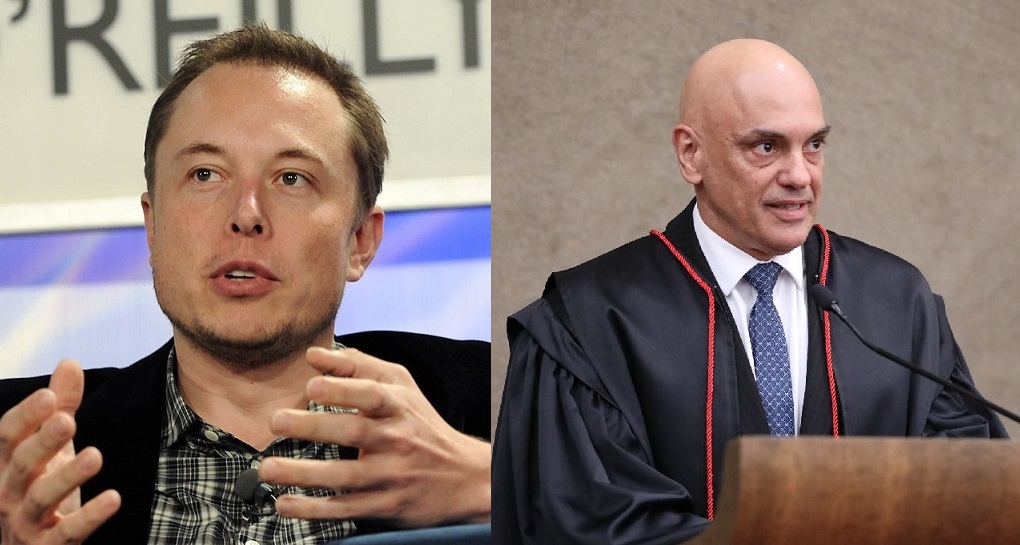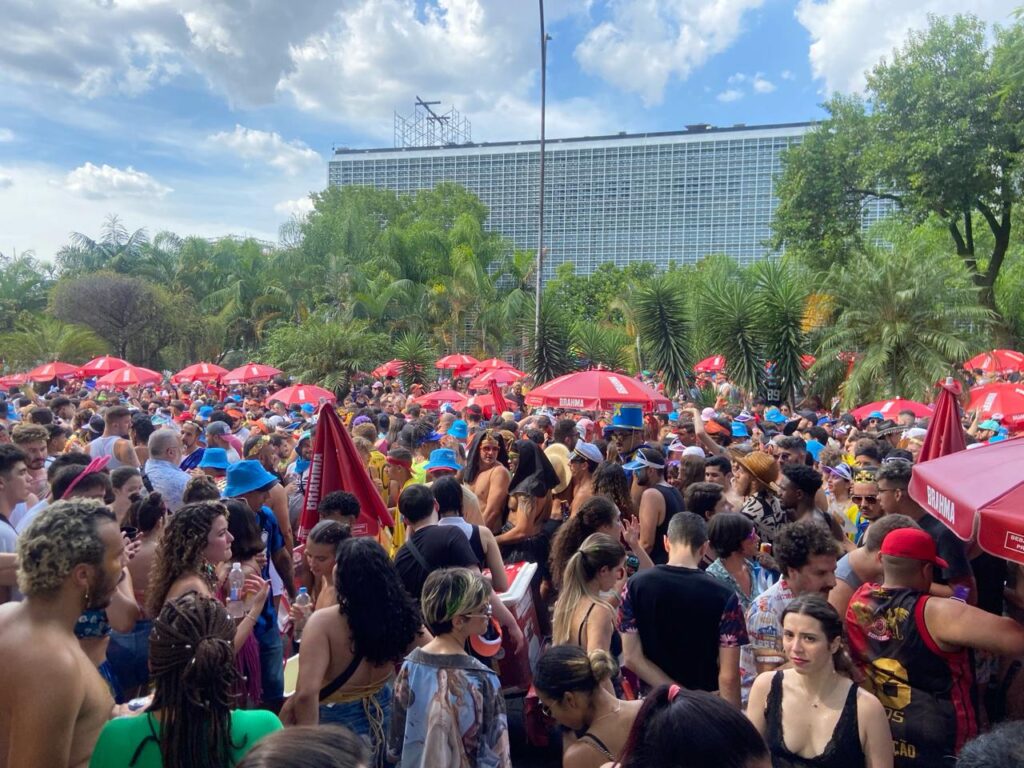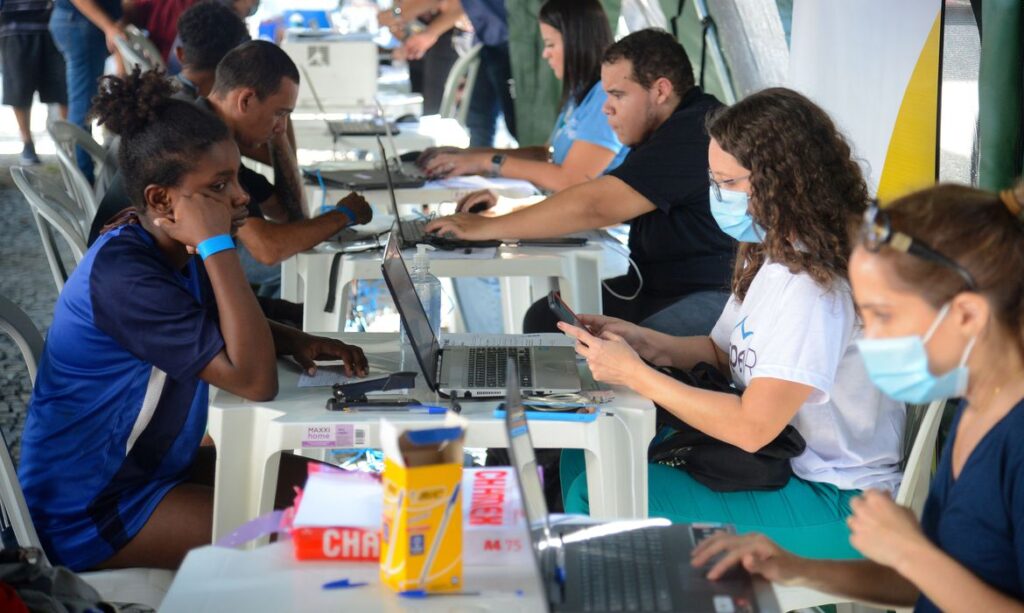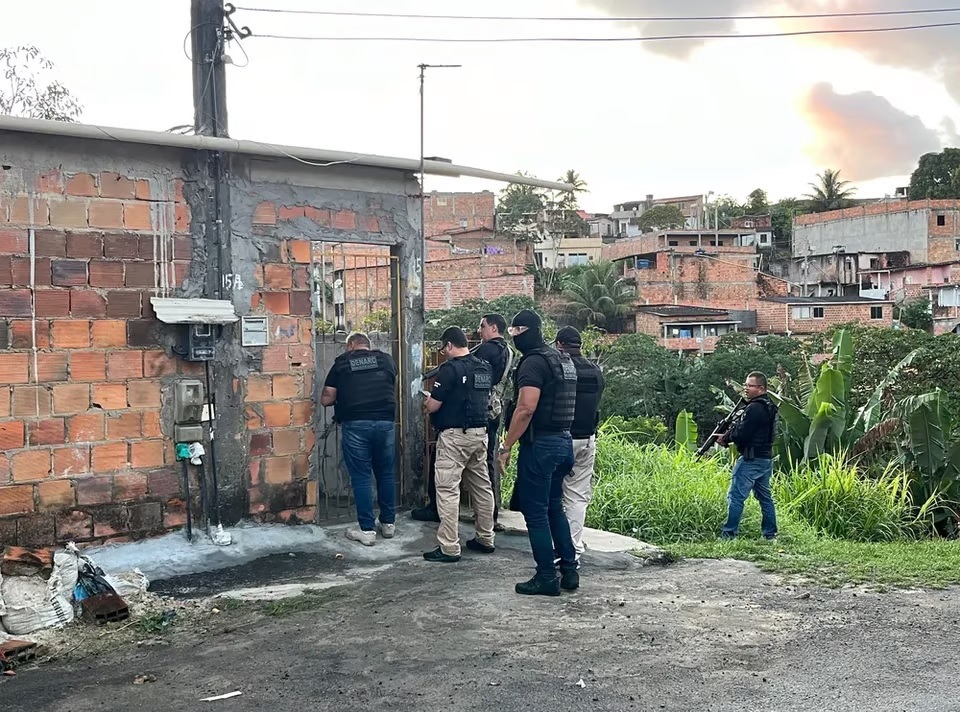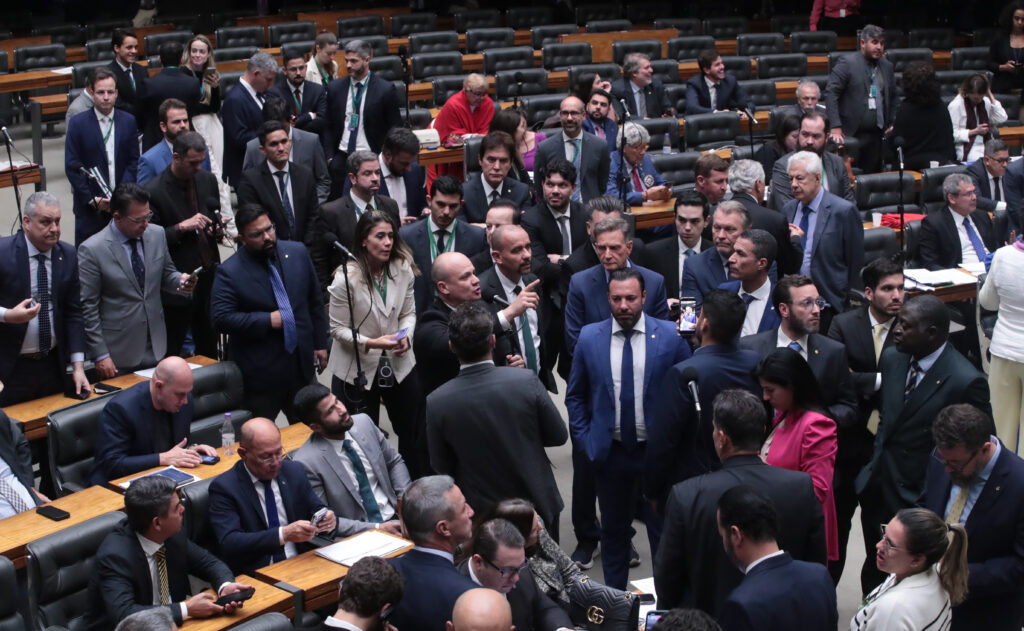São Paulo, Brazil – Free speech laws in Brazil garnered international attention over the weekend as Elon Musk, the multi-billionaire owner of Tesla, SpaceX and X (formerly Twitter), went on a rant about Brazilian Supreme Court Justice Alexandre de Moraes. Moraes has been leading investigations into the dissemination of fake news during the country’s 2022 presidential elections.
Musk criticized Moraes’ decisions to suspend accounts on X that were allegedly spreading fake news about the country’s electoral process.
In retaliation, Moraes included Musk in a Supreme Court investigation into so-called “digital militias,” which are organized groups — allegedly mainly linked to the alt-right — accused of spreading fake news online. Despite this, Musk continued to criticize the judge’s decisions and even threatened to end X in Brazil.
The backstory
Musk’s criticism began Saturday, when he announced that he would stop complying with Moraes’ orders and would re-activate the accounts that had been blocked on the platform. He accused the judge of violating Brazilian laws and promoting “aggressive censorship.” He also called for Moraes’ resignation or impeachment.
“This judge (Alexandre de Moraes) brazenly and repeatedly betrayed the constitution and the people of Brazil. He should resign or be impeached,” Musk wrote on X. In Brazil, Supreme Court judges remain in office until they turn 75 and can only be impeached by the Senate, something which has yet to happen in the country’s history.
On Sunday, Moraes reacted and ordered an investigation into Musk. According to the judge, it’s “unacceptable” for any social media to be “unaware of the criminal instrumentation that has been carried out by digital militias in the dissemination of countless illicit practices on social media, especially in the very serious attack on the Democratic Rule of Law.”
Moraes said that platforms operating in Brazil must have “absolute respect” for the Constitution and Brazilian laws. Musk will reportedly be investigated for crimes including obstruction of justice, criminal organization and incitement of crime. The decision could also result in a daily fine of R$100,000 (USD $20,000) if Musk fulfills his promise to unblock the banned accounts. Despite the threats, as of publication, the profiles remain suspended.
Suspended profiles include allies of former President Jair Bolsonaro, who is being investigated for allegedly plotting a coup attempt following his loss in the October 2022 elections. Many banned accounts include Bolsonaro sympathizers, mainly politicians and journalists, who are also suspected of involvement in the January 8, 2023 attack on Brazil’s government headquarters in an effort to overturn the election results.
Moraes has become a central figure in Brazil’s recent political turmoil. He is leading the investigation into Bolsonaro’s alleged coup attempt, and as President of Brazil’s Superior Electoral Court, he made a series of controversial decisions to combat fake news ahead of the 2022 elections including ordering platforms to remove content deemed false by the court within two hours, at risk of huge fines. He has since become a bogeyman of sorts amongst Bolsonaro supporters.
Moraes has received public support from President Luiz Inácio Lula da Silva and other left-wing politicians.
On Monday, the president of the Supreme Court, Judge Luís Roberto Barroso, also came to the defense of his court colleague and supported the suspension of profiles that spread fake news on social media.
“Any and all companies operating in Brazil are subject to the Federal Constitution, the laws and decisions of the Brazilian authorities. Court decisions may be subject to appeal, but never deliberate non-compliance. This is a global rule of law that we will make prevail in Brazil,” said Barroso in a statement.
Meanwhile, Musk continues to post messages against Moraes on X and showed signs that he won’t stop anytime soon. On Monday, he accused the judge of prohibiting users from being informed that their accounts were blocked by court order.
“We kept getting these demands from Judge Alexandre to suspend accounts of sitting members of the parliament and major journalists. We could not tell them that this was at the behest of Alexandre … we had to pretend that it was due to our rules service,” he said in an audio post. He even called Moraes a “dictator”.
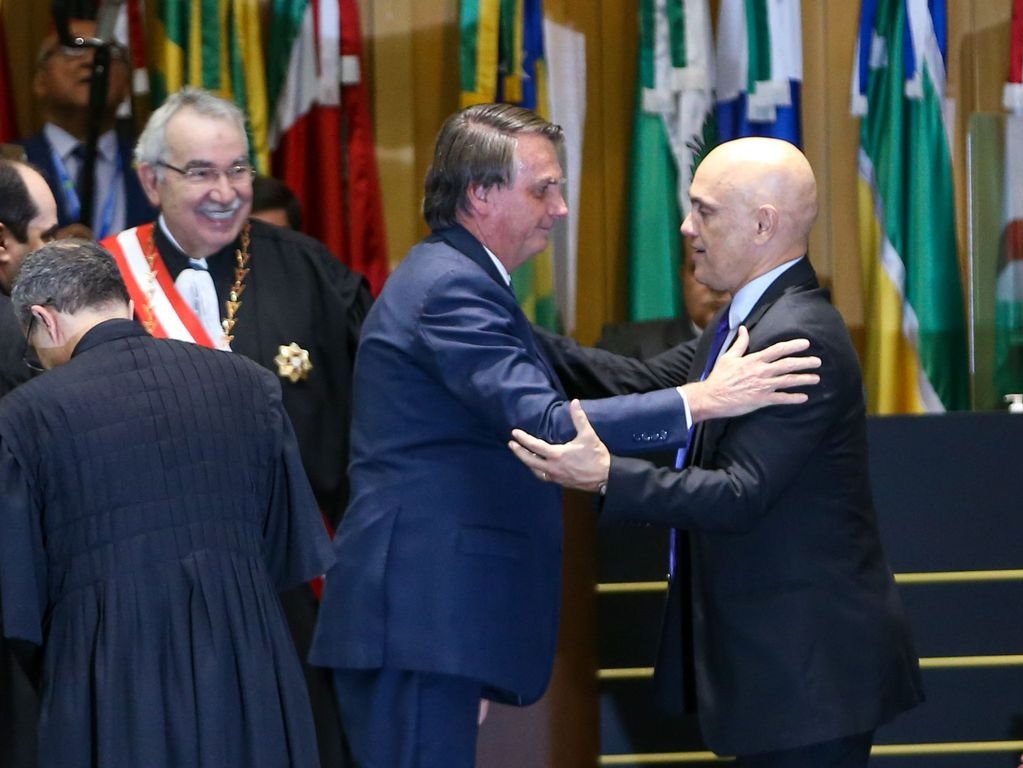
Freedom of speech
Unlike the United States, which strongly defends freedom of speech in its Constitution’s First Amendment, in Brazil, freedom of speech, despite being a right provided for in the Constitution, it’s not an absolute right and can be limited in case of crimes.
Constitutional law professor and lawyer Antonio Carlos de Freitas Junior explained that the tradition of Brazilian law is to support freedom of speech, prohibiting anonymity and censorship. But freedom of speech can be minimized if a person commits a crime, which includes, for example, hate speech and false information.
“The big concern is that, today, the civil and criminal responsibility may be less than the social impact caused by a lie spread on social media,” he said to Brazil Reports. “It is not possible to go back and undo the evil that was done. The impact of fake news is huge and traditional instruments no longer work. Therefore, the legislation needs to be changed.”
According to Freitas Junior, nowadays, an offense or a lie spreads much faster on social media, which can end a company, harm democracy or create emotional triggers for certain people. “Freedom of speech is not absolute, the value of truth is also a constitutional principle that needs to be respected,” he added.
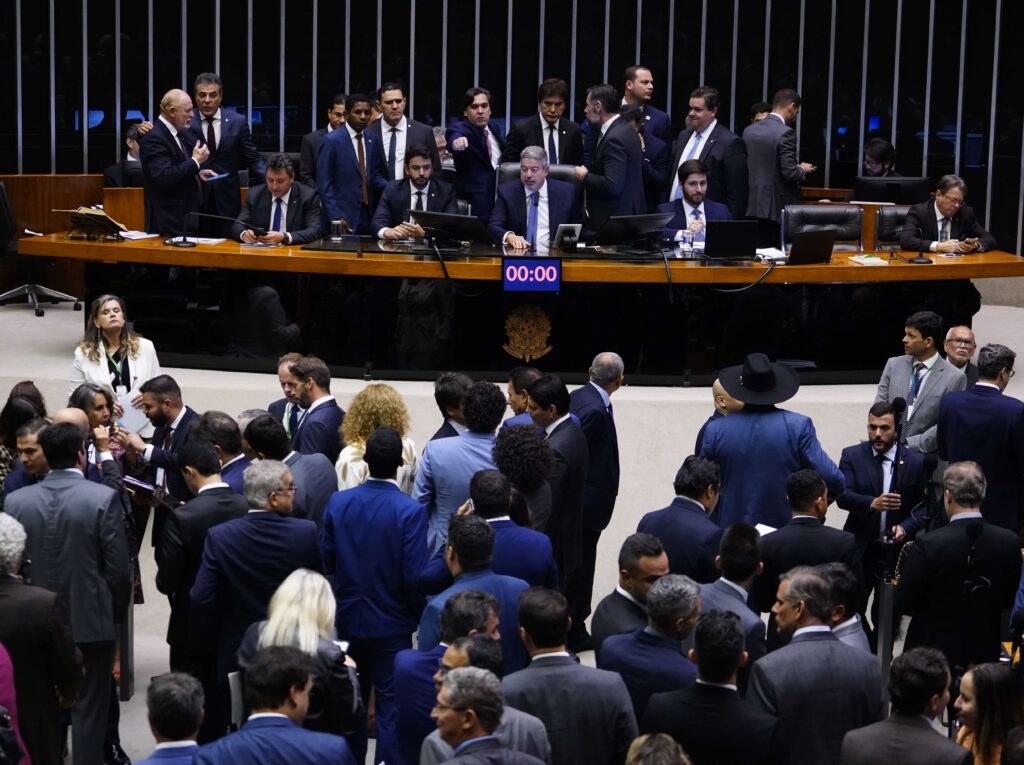
A fake news bill
Backed by the federal government and a majority of Supreme Court justices, a bill that regulates social media, known as the “fake news bill”, has been waiting to be voted on by the Brazilian Chamber for over a year.
The bill affirms that social media, messaging apps and search platforms must act to withdraw or reduce the reach of accounts and posts accused of spreading criminal content, such as the encouragement of coups, acts of terrorism, suicide, crimes against children and teenagers, discrimination and prejudice, violence against women and health violations.
Companies may be fined if they don’t follow a court decision to remove criminal content and could be held accountable in court for damages caused by content that violates the law. The proposal also deals with rules for advertising, payment for journalistic content and even government accounts on social media.
The proposal has already been approved by the Senate, but there is still no date for it to be voted on in the Chamber, Brazil’s lower house.


